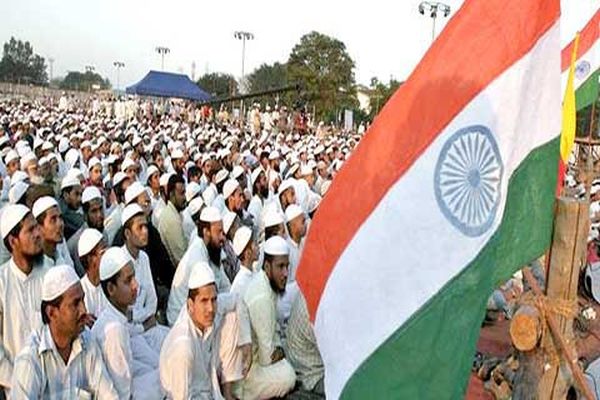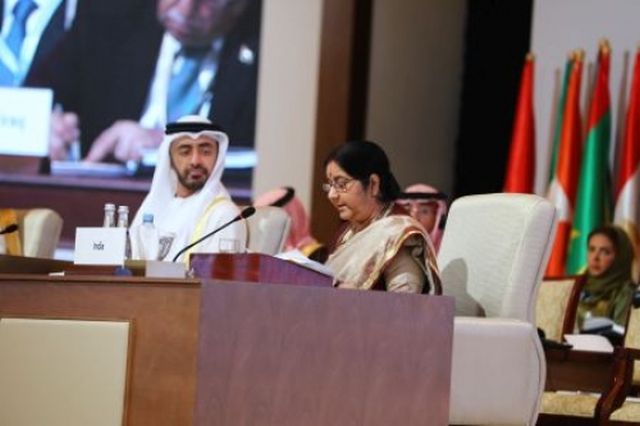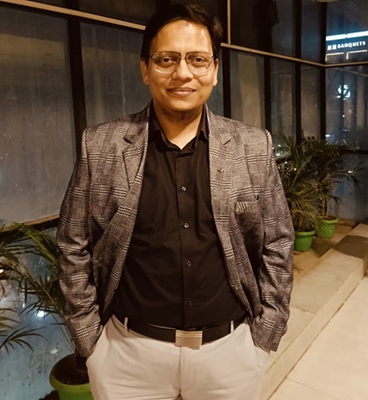
Dr Syed Misbahuddin: An Indian – American Visionary Leading the Future of Education
BY Danish Reyaz | Maeeshat | Hyderabad
Education has been the cornerstone of humanity’s remarkable journey. It has propelled humanity to unimaginable trajectory of progress, revolutionizing societies and shaping the course of history. From ancient scribes preserving wisdom on papyrus to modern classrooms illuminated by digital screens, education has transformed the way we understand and interact with the world. It has empowered individuals, bridged divides, and nurtured a vision of collective progress that transcends borders and generations.
Education has led humanity to come out of ignorance, challenge age-old conventions, and build civilizations that are rooted in knowledge, understanding and innovation. It has ignited imaginations of countless minds resulting in remarkable discoveries and inventions, as well as giving rise to revolutions that have shaped the world. The story of human progress is, in essence, the story of education—a true transformative force that has been consistently driving humanity towards a future of infinite possibilities.
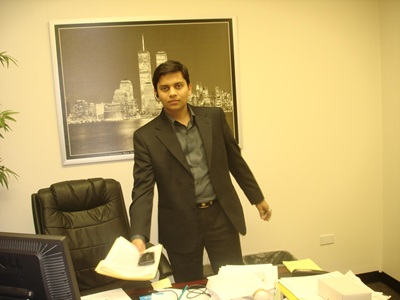
That said, the world has evolved so rapidly that the role of education has never been more critical than it is today. In fact, education now struggles to keep pace with the unprecedented needs of the modern world. While technology and innovation reshape every facet of human life, many educational systems remain anchored to outdated methods and rigid structures.
The gap between traditional practices and modern needs grows wider, leaving learners unprepared for the complexities of the future. The very force that once propelled humanity forward now risks becoming a barrier to progress, calling for an urgent need to reimagine how education is imparted.
At this critical juncture, there are individuals who have taken it upon themselves to improve the education system in line with the evolving needs of our times. These educational entrepreneurs singular aim is to address the learning gaps among children and devise a system that ensures a level playing field for all to thrive, while fostering their holistic development.
Among them is Dr. Misbahuddin, a dedicated trailblazer who has committed his life to transforming education. Leveraging his extensive research and IT background he has developed innovative methodologies that redefine the way knowledge is imparted, taking into account the challenges of the modern era with creativity and vision.
Early Lessons from His Father
Our early years often shape the trajectory of our lives, molding us into who we ultimately become. For the distinguished educationist Dr. Misbahuddin, it is only but natural to explore the formative experiences that laid the foundation for his remarkable journey.
Born on April 12, 1980, in Jeddah, Saudi Arabia, where his father, Syed Moezuddin, was working at the time, Mr. Misbahuddin spent the first few years of his life abroad. However, when he was around four or five years old, the family returned to their hometown of Hyderabad, marking the beginning of his educational journey in the culturally rich city of South India.
His father was a visionary man who firmly believed in educating his children and instilling in them values that would serve them well in life. Among his seven siblings—five sisters and two brothers—Mr. Misbahuddin, as the eldest son, received special attention and grooming. His father often addressed him as his “Wali-Ahad,” meaning heir apparent or crown prince, and treated him with respect and tenderness, even during his childhood.
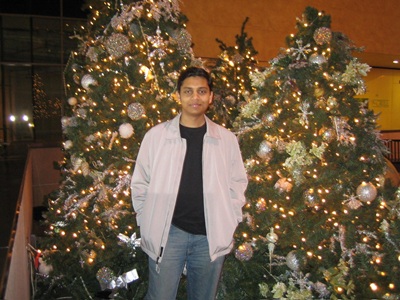
This treatment often surprised young Misbahuddin, prompting him to ask why his father showed him such care and respect. His father’s response left a lasting impression: “I want to treat you with the respect you will one day deserve. By doing so, I hope to inspire you to grow into a person of honor, one who achieves a distinguished place in society.”
This profound approach to parenting instilled confidence and ambition in Mr. Misbahuddin, paving the way for his transformation into a remarkable leader and a highly esteemed educationist of exceptional ability. But when did this desire to work in the field of education take its root?
Dawning of a Vision
Mr. Misbahuddin says that his aspiration, albeit innocent, to reform the education system began in his childhood and was deeply influenced by Hyderabad’s transformation. This period nurtured his empathy and desire to address the challenges faced by children struggling within a flawed education system.
No doubt, Hyderabad, is a culturally vibrant city renowned for its stunning minarets, bustling streets, and delectable cuisine. However, beyond its rich heritage, the city has also emerged as a formidable hub of technological innovation. Mr. Misbahuddin recalls, “During the early nineties, Hyderabad progressed by leaps and bounds, with numerous MNCs, technology parks, and IT centers transforming its landscape. The city soon earned the moniker ‘Cyberabad’ referring to its IT revolution.”
He reflects that this transformation coincided with his schooling days, a time when he pondered whether the underprivileged youth—those studying in regional-medium schools without access to well-equipped English-medium institutions— reap the benefits of this technological revolution. Even at a young age, his observant mind noted that alongside the city’s progress, the educational landscape was also evolving, with a proliferation of private schools offering quality education. While this development addressed a critical need, it also widened the gap between government-run schools and private institutions, creating stark disparity in opportunities.
Dr. Misbahuddin showed an aptitude for academics from an early age. He admits that while he occasionally struggled with his studies, he managed to overcome these challenges through sheer hard work, determination, and guidance from his father. However, he witnessed many of his friends finding it difficult to recover when they faltered, despite being equally talented and diligent.
“It wasn’t their lack of effort,” he reflects. “It was the education system’s inability to adapt and innovate, failing to identify and address where they were struggling. I often wished, even back then, for a system that could be reformed to truly support every student.” He, however, didn’t realize at that time that his yearning for an education system attuned to students’ needs would lead him to finally become an educationist, championing transformative changes to nurture and prepare students for the ever-evolving demands of the future.
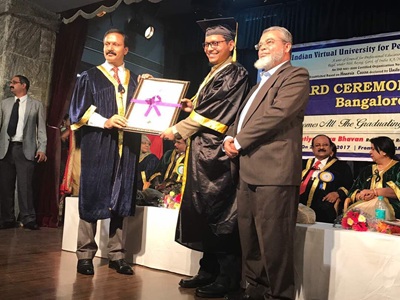
Timely Intervention
Before embarking on his journey as an educationist, Mr. Misbahuddin seemed destined for a distinguished professional career, thanks to his exceptional academic achievements. After excelling in his schooling and intermediate, he pursued a bachelor’s degree in Computer Science from Osmania University—a field that perfectly aligned with his passion and aptitude. However, this might never have happened, and Mr. Misbahuddin could have faded into obscurity like so many others, had it not been for the timely guidance and support of one of his mentors.
During his intermediate years, Mr. Misbahuddin put in considerable effort to prepare for the engineering entrance exams. Unfortunately, due to a paper leak, the exam was canceled that year. This was a significant setback, but an even greater misfortune awaited him during the re-examination.
When the re-exam was scheduled, his father was in Delhi for some work, so Mr. Misbahuddin traveled to the exam center with his younger brother. However, by mistake, he took a bus on the wrong route. Realizing the mistake midway, he switched to the correct bus, but this caused a considerable delay in reaching the center. He recalls, “Although I was eventually allowed to enter the examination center after much pleading, my ordeal didn’t end there. Just as I was about to write the exam, an authority came up and snatched my papers, citing that I was too late. Despite my heartfelt pleas and assurances that I could make up for the lost time, he refused to relent, and I had to leave the examination center, heartbroken, without attempting the exam.”
This incident left Mr. Misbahuddin guilt-ridden, as he believed it was his fault, and that his entire year was going to waste, especially as the financial situation at home began to deteriorate. In the midst of this crisis, he admits to succumbing to poor judgment. A friend of his father, despite knowing his potential as a student and his passion for engineering, suggested that he pursue a course in Optician instead. The friend claimed this would secure a scholarship for him, and within two years, he would also be employed. Mr. Misbahuddin, reluctantly accepting the suggestion, was admitted to an Optician program, convinced that this marked the end of his dream of studying engineering. However, it was not to be—Allah had a plan in place for him.
Lateef Mohammed Khan Sahab from MS Education, where Mr. Misbahuddin had previously taken a crash course for his entrance exam and impressed him with his potential, unexpectedly visited his home to inquire about his results. To his surprise, he learned that Mr. Misbahuddin had enrolled in an Optician program. Concerned, he suggested that Mr. Misbahuddin leave the course and give engineering another try. However, Mr. Misbahuddin explained his financial constraints, as he had already exhausted his resources on the Optician course.
Hearing this, Lateef Mohammed Khan Sahab proposed a solution: Mr. Misbahuddin could sit for a test, and if he passed, he would be coached free of charge. It was a God-sent opportunity for Mr. Misbahuddin. He not only cleared the test but, under Lateef Mohammed Khan Sahab’s mentorship and coaching, successfully passed the engineering entrance exam as well. “Had it not been for Lateef Mohammed Khan Sahab’s timely intervention, I might have ended up as someone testing and suggesting the right eyeglasses to people with my real dreams remaining unfulfilled,” says Dr. Misbahuddin.
Little did Mr. Misbahuddin know that Lateef Mohammed Khan Sahab would cross his path once more at another important juncture in his life, serving as a guiding bridge that would lead him toward fulfilling his ultimate dream of transforming the education system.
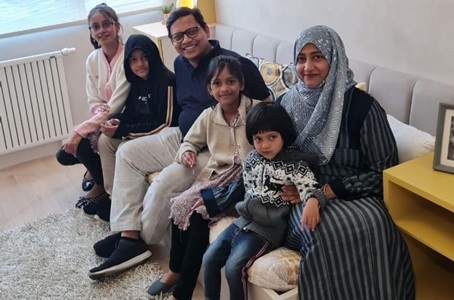
America Calling
After completing his bachelor’s degree, Mr. Misbahuddin was determined to achieve something significant in life. He realized that pursuing higher education would be the key to unlocking greater opportunities. Recognizing his merit, he was encouraged to pursue a master’s degree in the United States—a land of opportunities for the deserving and hardworking.
Despite his ambition, Mr. Misbahuddin was initially hesitant to study abroad due to the significant financial costs involved. However, his well-wishers, who had unwavering faith in his potential, encouraged him to take the leap and even offered their support to help him realize his dream.
In 2002, he arrived in Chicago and enrolled at DePaul University to pursue a Master’s in Information Systems and Project Management. Dedicated and driven, he poured his heart and soul into it and excelled in his studies, continuing his tradition of academic brilliance.
Losing the Guiding Light
Mr. Misbahuddin shared a special bond with his father, as previously mentioned. It was his father who instilled ambition in him and inspired him to pursue his goals, consistently encouraging him to strive for excellence. This unwavering support became the foundation for his determination and success.
He reflects, “My father was overjoyed when I decided to pursue my education in the U.S. He believed it would pave the way for greater opportunities and success in my life. While his belief proved true, he didn’t live to witness it. He passed away in 2004.” With a deep sigh, he adds, “I only wish he had lived a few more years to see me achieve something and fulfil the dreams he had for me.”
Recalling the day his father passed away, Mr. Misbahuddin shares that he had a premonition about what was to come. He recounts a dream in which his father appeared and spoke to him as if bidding farewell. He vividly remembers, “I woke up with tears rolling down my cheeks and immediately called home to check on my father. I was told he was slightly unwell, but nothing serious. Yet, deep down, I felt something wasn’t right.”
Later that afternoon, his elder sister confirmed the devastating news that his father had indeed passed away. “It felt like my world had collapsed,” he says.
Reflecting on the experience, he adds, “I was astonished by how I could have such a premonition while being thousands of kilometers away in a foreign land. Perhaps it was the bond I shared with my father—so profound that he appeared in my dream before passing away, as if to show how much he truly loved me.”
Expressing his deep respect and admiration for his father, Mr. Misbahuddin recalls a pivotal moment from his matriculation. Having secured a distinction, he was to be honored with other successful students from Hyderabad at a special event. He surprised the audience and organizers by requesting to receive his award from his father’s hands. This gesture demonstrated the huge importance his father held in his life at that young age. Indeed, his father’s passing was a significant blow, as he felt he had lost his true guiding light.
While pursuing his master’s degree, Mr. Misbahuddin mentions securing a promising job at IBM to support his family and ease the burden on his father. He says, “Since my matriculation, I had been supporting my family and covering my expenses while studying. In the US, I worked multiple odd jobs to support both myself and my family back home. However, these jobs consumed much of my time, so I applied to IBM for a more stable and well-paying position. Unfortunately, the joining date coincided with the day my father passed away.”
He shares that when he received the call confirming his joining, he informed the recruiter that he was leaving for India due to his father’s death. While the recruiter expressed sympathy, he also urged him not to miss the opportunity, emphasizing that such roles were rare, especially for someone without prior experience or a completed master’s degree. But for Mr. Misbahuddin, no job, no matter how significant, could outweigh the importance of being with his family during such a profound loss. Without a second thought, he boarded the next flight to India, honoring the bond he cherished most deeply.
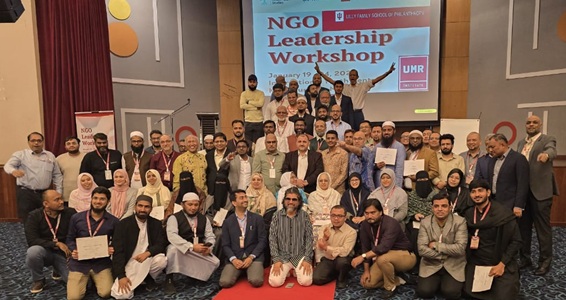
A Remarkable Career Path
During his time in the United States, Mr. Misbahuddin built a distinguished career in project management and technology consulting. Known for his expertise in SAP solutions and his ability to streamline processes, he became a trusted professional for delivering innovative, impactful results.
He mentions that when he returned to America after his father’s death, he was without a job, as the IBM offer had expired. However, he managed to secure a small contract position to sustain himself, followed by another job. Yet, this didn’t align with his ambitions, as he didn’t want to be confined to a 9-to-5 job forever. Just a year later, in 2005, he co-founded a company, Next Generation Technology Inc., with his friend Lalit Deo from Odisha, India. “My friend is a wonderful person who shares the same passion and vision as I do. It was his sister who held a green card, so we took advantage of this opportunity. Under her name, we established our company and started offering consulting services initially,” he reveals.
Mr. Misbahuddin explains that the consulting work he did was now routed through his company. Additionally, they began training students to bridge their skill gaps, making them employable and providing placements. However, they wanted to make a more significant impact. Later, they refined their practices and organized several executive roundtables in five-star hotels, where they engaged with CTOs of major companies, introducing their services and building valuable business relationships. This strategy helped create new opportunities and fostered the growth of their company.
The next pivotal phase in their business journey was securing investment, a crucial step for any company aiming to scale. A group of Norwegian investors infused millions of dollars into their company, propelling its growth. “What followed was remarkable,” recalls Mr. Misbahuddin. “Within just three years, we had our own office building, cars, and homes. It truly felt like a dream turned into reality.”
The next step for the duo was to acquire an American company and re-establish it as American Business Partners. “Through this venture, we became a development partner of SAP, designing industry-specific solutions for them. We also collaborated with several other major companies, including Tipco and Clipio, among others,” shares Dr. Misbahuddin.
He also reveals that they were invited by Odisha’s then Chief Minister, Naveen Patnaik, to present their plans for investing in the state’s biotech sector. The Chief Minister had allocated a substantial tract of land for the project. However, unforeseen challenges with patent approval in the US hindered them from moving forward with production in Odisha.
“While this project couldn’t come to fruition, we still had two major companies thriving and expanding rapidly. But, little did I know that my journey was about to take a different turn from here on,” says Dr. Misbahuddin.
Destiny Beacons
Despite a flourishing professional career in the U.S., Mr. Misbahuddin’s true ambition—to transform the education system—remained close to his heart, a vision he had carried since his youth. Having witnessed the challenges of India’s education system firsthand, he was deeply aware of its shortcomings. Driven by a desire to give back to his roots, he aspired to dedicate himself to this meaningful cause. He shares, “I always felt a pull toward this goal. I didn’t know how to pursue it back then, but I was genuinely committed to giving it a try.”
In 2009, when his mother fell gravely ill, Mr. Misbahuddin knew he had to be by her side. Her condition required close medical attention, and he was determined to ensure she received the best care possible. Reflecting on his decision to return to India, he shares, “As a child, I once suffered severe burns after falling into hot water at home. I was hospitalized for several days, and my mother stayed by my side tirelessly, day and night, sacrificing her rest and tending to me with tearful eyes. When she needed me the most, I knew it was my turn to care for her. She was my mother—I couldn’t even imagine staying in the U.S. while she faced such hardship back in India.”
During his mother’s treatment, Mr. Misbahuddin’s return to India marked a turning point in his life, reigniting his ambition with renewed purpose. He chose to stay and pursue his dream, even though it meant putting his thriving career in the U.S. on hold. Reflecting on this pivotal moment, he shares, “A decision had to be made, and I chose to follow my true calling here, even though, it demanded compromises. To work in social sphere, sacrifices are inevitable, and I willingly made mine.”
The Journey Begins
In India, Mr. Misbahuddin connected with like-minded individuals whose ideals and ambitions aligned with his own. Eager to make an impact in the education field, he was weighing a few options but was unsure how to begin. This resulted in prolonging his stay in India. It was then that his mentor from the past, Lateef Khan Sahab, reappeared in his life.
Mr. Misbahuddin happened to meet Lateef Mohammed Khan Sahab at a marriage function. Upon learning that he was now in India, Khan Sahab invited him to visit MS Education to see how things were moving and also asked him to meet with him. Khan Sahab wanted him to create a plan for the expansion of MS Education and how to streamline the existing processes, a task Mr. Misbahuddin happily undertook. The plan impressed Khan Sahab who subsequently requested his help in executing it. This marked the beginning of Mr. Misbahuddin’s involvement with MS Education.
A Pathbreaking Presentation
As Mr. Misbahuddin diligently worked on the expansion plan for MS Education, Lateef Mohammed Khan Sahab entrusted him with an additional responsibility that would become a defining moment in his journey. This task not only showcased his capabilities but also earned him recognition among community scholars and leaders as a forward-thinking advocate for minority education.
An upcoming education conference presented an opportunity for thought leadership. Khan Sahab tasked Mr. Misbahuddin with preparing a presentation on the theme, ‘How to Put Your School on the International Map.’ Drawing on his research expertise and global exposure from his time in the U.S., Mr. Misbahuddin crafted a presentation that exceeded expectations.
Deeply impressed, Khan Sahab made a surprising decision. “This presentation is your masterpiece,” he told Mr. Misbahuddin. “I could never do it the justice it deserves. You must deliver it yourself.”
This gesture of trust and encouragement was a significant honor for Mr. Misbahuddin, boosting his confidence and positioning him as a rising voice in the field of education. It was a moment that cemented his resolve to bring meaningful change to the education sector.
Mr. Misbahuddin says, “Preparing the presentation, not only did I try to understand different types of education systems from various parts of the world, but I also traced back through history to see how the system used to be compared to now.”
According to him, historically, education was need-based, where individuals were trained in specific skills related to their trades, while nobles and their children received formal education—not everyone had access to it, as was the case in India as well. The concept of a public education system is relatively recent, introduced during the Industrial Revolution when capitalists required a trained working class, which was made possible through mass education.
Upon conducting his research, he discovered that the Muslim education system was remarkably advanced. Imam Ghazali Rahmatullah Alaih had outlined a comprehensive and inclusive education system that catered to everyone—regardless of their color, wealth, or social status—without any discrimination.
Under this system, children of the same age would gather in a Halqa, engaging in discussions and debates under the supervision of a teacher seated on a chair—hence the term chairperson. Each mosque hosted a Maktab (elementary school), the Badi Masjid of the neighborhood had a Madrasa (high school), and the Jama Masjid in every town housed a Jamia Madrasa, which served as a university-like institution. Children up to the age of 7 were primarily engaged in learning calligraphy, playful activities, and muscle development exercises. From the age of 7 onwards, they received basic education, which was followed by specialization in specific fields after the age of 14. The system had a harmonious blend of Ilm and Deen for the holistic development of our children.
Mr. Misbahuddin argued in his presentation that this was the foundation of our traditional education system, which was later overtaken and altered during the Industrial Revolution, leading to its corruption. What was once a value-driven education system that produced scholars, ethical leaders, researchers, and philosophers for society, transformed into a need-based system. The primary goal of the new education system became to churn out individuals tailored to fulfill industrial demands. This shift, he contended, demeaned the value of humans, reducing them to mere resources for industries.
He stated that to put the school on the international map, it was essential not to be blind followers. Instead, he emphasized the importance of reflecting on the strengths of our past education system, understanding the true purpose of education, and critically evaluating everything implemented in schools. He further highlighted that the approach must be thoughtfully designed and aligned with a vision rooted in the fundamental principles of education.
From Insecurity to Pride: A Personal Evolution
During his comprehensive research for the presentation, Mr. Misbahuddin discovered numerous fascinating insights into the significant contributions Muslims made to the evolution of the education system. Reflecting on this, he remarks, “While Europe was in the Dark Ages, the Muslim world was thriving in the Islamic Golden Age, propelled by a well-structured and visionary education system. This system nurtured advancements in art, culture, science, mathematics, and countless other fields. It’s a legacy of progressiveness we should take immense pride in.”
Mr. Misbahuddin shares that when his presentation concluded, it received a rousing reception that brought tears to his eyes. It wasn’t the applause or recognition that moved him to tears but rather the profound personal transformation he experienced during the process. It was a reaffirmation of his faith and the shedding of his own insecurities.
He recalls, “Even at the peak of my career in America, I often felt insecure. If an American asked me to repeat my name, I would become self-conscious, wondering if they perceived me as an extremist, a fundamentalist, or even a terrorist because of my name. But when I finished my presentation, I felt an incredible sense of liberation. I stood before the audience, free from doubt and fear, and proclaimed with unwavering conviction, ‘I am a proud Muslim.”
Entrusted with Responsibility
The next year, Mr. Misbahuddin was entrusted with delivering another presentation at the conference, which once again proved to be groundbreaking. This time, he delved into lessons of a historic event: the 1977 World Conference on Muslim Education (WCOME), held in Mecca, Saudi Arabia. The conference was attended by prominent scholars and educationists from both Muslim world and the West. and marked a significant step in reshaping the trajectory of Muslim education, which at the time faced the challenge of secular education encroaching upon its foundations.
The conference emphasized the need to revisit the core principles of Islamic philosophy and integrate them with modern education. Its goal was to reconcile the two, ensuring that modern advancements were adopted without compromising the spiritual and ethical foundations of Islamic education.
“It was essentially about viewing the education system through an Islamic worldview—embracing the strengths of modern education while carefully mitigating its shortcomings,” says Mr. Misbahuddin. His presentation not only revisited these foundational ideas but also underscored their relevance in tackling contemporary educational challenges. He further adds, “To take it a step further, my presentation outlined practical approaches to designing a curriculum aligned with this vision.”
Impressed by Mr. Misbahuddin’s presentation, the conference facilitated an open discussion and entrusted him with the task of designing a curriculum based on his vision and research. Since he did not come from a traditional education background, his practical and unbiased approach was highly valued by the prominent attendees at the conference. The responsibility also marked Mr. Misbahuddin’s formal foray into the education field and his association with MS Education.
Diligent Leadership at MS Education
At MS Education, Mr. Misbahuddin brought together his professional expertise and a deep passion for educational initiatives, demonstrating his signature traits of dedication and diligence. Serving as Managing Director, he not only contributed significantly to the organization’s growth but also gained valuable insights into the systemic challenges facing the education sector.
His role encompassed overseeing the organization’s expansion by establishing new branches and spearheading curriculum development. Reflecting on his journey, he says, “Having designed the expansion plan myself, I knew exactly how to implement it and drive it toward success.” Remarkably, by 2016—just seven years after he joined—the ambitious target of establishing 100 branches had been achieved.
Curriculum design required extensive research from Mr. Misbahuddin, as he wanted it to reflect his best effort, recognizing the immense responsibility it held in serving the community. He not only explored various education systems around the world, including those in India, but also delved deeply into Islamic history, studying the works of scholars ranging from Sheikh Shadi to Maulana Rumi.
“We took a comprehensive approach,” he explains. “We examined how students learn at various developmental stages, reviewed the offerings of different publications, assessed the content of textbooks, and aligned everything with NCERT guidelines.”
He adds, “The framework we ultimately developed not only addressed all critical concerns but also integrated the Islamic value system at its core, ensuring it was both holistic and meaningful.”
Under Mr. Misbahuddin’s leadership, the organization implemented innovative strategies to improve learning outcomes and make quality education accessible to more students. These efforts further reinforced his commitment to driving educational reform, shaping a vision that would later define his larger mission to transform the lives of countless needy students.
Charting His Own Course
Every association eventually reaches its natural conclusion. The end of every association marks a new beginning, with the wisdom gained paving the way for future endeavors. So, when Mr. Misbahuddin’s tenure with MS Education ended, he decided to carve his own path in the education sector, recognizing the need for disruptive and innovative ideas to create a more tangible impact. He emphasizes that starting his own organization was essential to implementing his vision freely, leading to the establishment of Mimber Academy in 2020.
Mimber originally began as a software solution developed by Mr. Misbahuddin during the COVID lockdown to help schools conduct online classes and provide structured lesson designs tailored to teaching children in such challenging circumstances. He explains, “When I decided to establish my own organization, I chose to name it after the software.”
The core idea behind the founding of Mimber Academy was to help schools foster holistic and supportive learning environments. At the heart of this mission is equipping teachers with the training and resources to meet both current and future student needs, all backed by an innovative curriculum designed not just to inform, but to transform.
Since its inception, the academy has flourished, providing exceptional services to schools across India. To date, it has partnered with over 4000 schools in more than 50 cities, trained over 90,000 teachers, and impacted the lives of more than 150,000 students. Besides India, it has also its presence in Turkey and the US.
Bringing Values Back to Education
Mimber Academy has made remarkable strides in helping schools move beyond outdated methods, embracing contemporary practices for the benefit of students. However, its standout achievement is the integration of Islamic moral teachings into the modern curriculum.
He reiterates his long-held view that, while modern education is indispensable, it has nearly eliminated value-based Islamic teachings, leading our children to stray into materialistic pursuits. “The depletion of values in the current generation is alarming, and if we don’t address this issue, it will only worsen in the coming years,” Mr. Misbahuddin expresses his concern.
Although awareness in this regard has been increasing, well-meaning schools continue to struggle with creating a blended curriculum. This is where Mimber Academy steps in. Mr. Misbahuddin explains, “Over the years, we have evolved into a holistic education advisory destination, offering the most contemporary and innovative modern educational methods while seamlessly integrating value-based Islamic teachings in an effective way, without placing additional burdens on students.”
Mimber Academy: The Name, Purpose, and Process
According to Mr. Misbahuddin, the term “mimber” carries deep significance. In Islamic tradition, the mimber—the pulpit inside a mosque—is where the Imam delivers sermons, spreading enlightenment and wisdom based on the teachings of the Quran and Hadith to the community. Similarly, Mimber Academy aims to spread enlightenment through education, making it a fitting and dynamic name for an organization committed to empowering individuals and transforming society through knowledge.
Mimber Academy recognizes its pivotal role and responsibility in the field of education, placing the highest importance on each of its branches to deliver comprehensive educational solutions effectively. Operating as a unified entity, Mimber Academy encompasses i) Mimber Advisory, ii) Harvest Publications, and iii) Trellis, each contributing to its mission in a streamlined and impactful manner.
i) Mimber Advisory
Mimber Advisory acts as a trusted partner, delivering customized solutions to schools at every stage of their journey—whether they are newly established, striving for excellence, or seeking to break free from stagnation. With its tailored, need-based strategies, Mimber Advisory empowers institutions to unlock their full potential and achieve remarkable growth.
As part of its comprehensive services, the Academy offers Mimber Advisory’s School Transformation Projects, which are designed to redefine educational excellence. The process begins with an in-depth school audit to carefully evaluate existing systems and practices. Mr. Misbahuddin says, “Based on these insights, we develop customized plans tailored to each school’s unique challenges and goals. By implementing personalized strategies, we aim to create a thriving environment that fosters academic success,” He further adds, “Our commitment doesn’t end with execution; we provide ongoing support and adapt strategies to ensure lasting and meaningful improvement.”
ii) Harvest Publications
Mimber Academy champions the holistic development of children, nurturing their body, heart, soul, and mind in unison. Recognizing that conventional textbooks often focus more on exam-oriented content than on overall growth, the Academy launched Harvest Publications. Through this initiative, it develops value-based, integrated curriculum books that foster well-rounded education, ensuring children are equipped to thrive in all aspects of life.
“We have more than 100 titles to our credit which are the result of extensive 12-year research. We have developed a system of learning that harmoniously integrates Taleem (skill-focused education) with Tarbiyah (character development through values),” shares Mr. Misbahuddin.
The Harvest books are strictly child-centric, keeping students’ needs as the top priority. There are three main series of Harvest books, each targeting different groups of students.
The Willow Series is designed to foster adaptability and perseverance in students, much like the flexible branches of a willow tree that bend without breaking and rebound after impact. This series aims to empower learners to navigate challenges with resilience and determination. It is rooted in values, combining skill-based learning with character development.
Just as Samar (meaning “fruit” in Arabic) embodies essence of growth and nourishment, the Samar Series aims to nurture young minds by introducing students to the Creator, Allah, His plans, and the understanding of their life’s purpose. Designed for faith-based schools, these books blend universal values with essential 21st-century skills to foster holistic development.
The third series of books is the Fellah Series, designed primarily for madrasa students who aspire to excel in both Islamic and modern education. It is structured in a way that introduces fundamental topics in a clear and simple manner, while the subjects are crafted in alignment with Quranic teachings.
Mr. Misbahuddin says, “Harvest books are one of a kind, truly addressing the need of the hour by blending moral education with modern education. Written in a clear and engaging style, these books incorporate real-life examples, lucid explanations, and practical exercises, ensuring that students fully grasp each concept and excel in their studies.”
iii) Trellis
High-quality education isn’t solely dependent on infrastructure and facilities; it hinges on well-trained educators who embrace modern methods and innovative strategies to meet the evolving needs of students. Mr. Misbahuddin explains, “Research has repeatedly shown that while good infrastructure is valuable, it doesn’t guarantee quality education—well-trained teachers do. Recognizing this, Mimber introduced Trellis, a dedicated training support system offering diverse programs to enhance educators’ expertise, skills, and creativity.”
The training programs are meticulously designed, including the Professional Development Training, which focuses on sharpening educators’ expertise through engaging and targeted learning experiences. This intensive program is structured into three phases, each delivered as a focused 5-day sprint spread across the year.
Leadership Training, on the other hand, is specialized program intended for Senior Leadership, including management, providing them with the essential skills and strategic insights to lead effectively and cultivate a culture of growth and excellence.
The Subject-Specific Training program is aimed at enhancing educators’ subject knowledge, held during the final two weeks of each month. It covers subjects including English, Hindi, Urdu, Mathematics, Environmental Studies, Science, Social Studies, and Preprimary education. Additionally, there is a dedicated Communicative English Training program focused on improving language proficiency and effective communication skills.
Teachers receive continuous support to create engaging classes and foster meaningful interactions through meticulously crafted Teacher Resources. These resources include detailed lesson plans designed to encourage collaborative activities and effectively measure students’ progress in skill acquisition.
Complementing the Teacher Resources are Trellis Workbooks, thoughtfully designed to provide engaging practice through activities such as games, puzzles, projects, and hands-on tasks. These workbooks aim to reinforce skill mastery while supporting the ‘light school bags’ initiative by replacing traditional homework books. Teachers’ Manuals serve as another valuable resource for educators, offering concise lesson overviews and convenient access to answer keys for quick reference.
“Our training programs and resources are designed not just to enhance teachers’ knowledge and skills but to reaffirm their vital role as the driving force of our education system,” states Mr. Misbahuddin. “By empowering educators, we aim to create a ripple effect that transforms classrooms and shapes future generations.”
Millat Foundation for Education Research and Development
Mr. Misbahuddin wears many hats. Alongside his leadership at Mimber Academy, he plays an active role in other initiatives, contributing his expertise to various organizations. He is a founding trustee of the Millat Foundation for Education Research and Development (MFERD), Hyderabad, and presently serves as its convener.
“MFERD is a non-profit organization that acts as a platform for individuals with shared values from diverse fields to collaborate and contribute towards the upliftment of minorities, particularly in education,” he explains. “The mission is to tackle the challenges faced by minority educational institutions and develop solutions through collective effort, research, and innovation.”
MFERD oversees several schools under its wing, delivering quality education through the development of a value-based curriculum similar to Mimber’s, aimed at nurturing future generations. Beyond education, MFERD also extends its efforts to the fields of health and other social sectors, working collaboratively to uplift minority communities.
“As Convenor and Management Advisor of MFERD, I am responsible for organizing annual conferences across the country. Additionally, I stay deeply involved in various organizational affairs, actively promoting research-based initiatives in schools and publishing journals focused on science and action research,” says Mr. Misbahuddin.
Leadership Beyond Education
Beyond the field of education and his own ventures, he has also held leadership roles in other reputed organizations, utilizing his technical proficiency effectively. He served as Managing Partner at Wisdom Collaborative, an organization dedicated to helping entrepreneurial ventures and businesses achieve profitability through research-based transformation processes.
Additionally, Mr. Misbahuddin has been a board member at Prudenture Due Diligence Services and EdVenture Park Incubation Center. He has also contributed as an Advisory Member at Skilling India Foundation and as Treasurer at Telangana Science Fair Academy. Notably, he holds the distinction of being a Steering Committee Member of the Global Association of Islamic Schools.
An Effective Orator and Motivator
While Mr. Misbahuddin has established himself as an exemplary leader in the field of education, he is also known for being a brilliant orator and motivator. For years, he has spoken at public forums and educational gatherings, and his eloquence has made him a frequent and sought-after speaker at these events.
He says, “Whether I am a good orator or not is not for me to decide, but I believe I am an effective speaker because I communicate clearly, engage the audience with relevant questions, and maintain their interest in the topic without coming across as imposing. Public speaking should never feel like one-way traffic.”
Mr. Misbahuddin emphasizes that being an effective speaker requires not only mastery of one’s core expertise but also a deep understanding of key issues affecting people and the world at large. He adds, “I am a voracious reader, and I firmly believe that true knowledge lies within the pages of books. I read extensively on a wide range of topics and stay updated with the rapidly changing world through the internet as well.”
Upon closer observation, one can see that his speeches are both solution-oriented and motivational. “Since I belong to the education sector, I mostly address teachers and students, so I have to be motivational,” he explains. “To motivate, one doesn’t need to be overly academic. Instead, it’s important to be approachable and inspire through practical examples and observations that the audience can easily relate to.”
Hundreds of teachers, students, and parents affirm that Mr. Misbahuddin is not only easy to understand but also highly inspirational in a friendly manner. They also note that he is responsive and provides practical solutions to their doubts and queries.
The essence of Mr. Misbahuddin’s impact as a speaker lies in his ability to forge deep connections with his audience, energize the atmosphere with his charisma, and combine vivid anecdotes with practical strategies that inspire rethinking, reimagining, and rebuilding.
International Engagements
Beyond the bustling auditoriums of India, Mr. Misbahuddin has delivered impactful speeches at high-profile international seminars and conferences, spanning the United States, the United Arab Emirates, Turkey, and South Africa. His presentations captivate audiences with a blend of profound expertise across diverse subjects and a universal appeal.
Whether addressing a hall full of educators on the Collaborative Leadership Framework or engaging corporate professionals with his views on blending technology with empathy, Mr. Misbahuddin’s thoughts are crystal clear, and his ideas are truly groundbreaking.
His vision for transforming the education system lies at the heart of his international engagements. At the AMS Conference in Durban—one of his most remarkable appearances—he demonstrated how to integrate artificial intelligence into classrooms without sacrificing the human touch. Additionally, he has facilitated various workshops for educators, introducing techniques such as mind mapping and memory mastery to make learning an adventure rather than a chore.
Mr. Misbahuddin says, “The fundamental need for education is universal across races, communities, and nations. What people seek is an education system that not only informs but transforms—a system rooted in a humane approach, enriched with innovative and contemporary tools to maximize outcomes without overburdening children. This shared vision allows me to connect effortlessly with diverse audiences, who, in turn, are highly receptive to my ideas.”
One of the hallmarks of Mr. Misbahuddin’s unique teaching approach is his memorable TED Talks, where he emphasizes the importance of connecting with students on a personal level. He masterfully infuses his philosophy with dynamic strategies that come alive through powerful acronyms, making his teachings not just memorable but profoundly impactful.
An Author Par Excellence
Mr. Misbahuddin is not only an exceptional speaker but also a distinguished author. Through his insightful books, he has enriched his intellectual legacy while empowering others to harness his ideas and translate them into actionable strategies for greater productivity.
“The Collaborative Leadership Framework” is a research-grounded book and lucidly authored, addressing the growing disconnect in education by emphasizing purposeful learning through collective effort. It highlights the importance of collaboration among stakeholders, clarity of roles, and shared accountability to guide 21st-century learners. By integrating curriculum, culture, infrastructure, and leadership, the framework demonstrates how schools can transform into hubs of innovation, nurturing thinkers and contributors to society.
Mr. Misbahuddin has also penned an influential book titled “From Lesson Plan to Lesson Design,” which highlights the crucial role of thoughtful lesson planning in a blended curriculum. The book provides a comprehensive approach to designing lessons, focusing on what students need to learn, how to sequence and present content engagingly, and how to incorporate impactful activities. It also offers practical strategies for accurately assessing student understanding, ensuring an effective and enriching learning experience.
“Action Research Journal”, on the other hand, reflects Mr. Misbahuddin’s innovative thinking, practical insights, and research-driven strategies aimed at empowering educators. The book provides a roadmap for fostering meaningful connections with students and achieving excellence in the teaching-learning process. It highlights the importance of diagnosing challenges at the beginning of the learning journey, crafting precise action plans, defining clear objectives, and employing comprehensive evaluation methods for impactful outcomes.
In addition to his books, Mr. Misbahuddin has penned hundreds of conference papers, research articles, journals, and essays, making significant contributions to the field of education. He reflects, “Writing has always been my passion. Whenever I develop ideas, strategies, or gain valuable insights, I document them, many of which later find their way to publication. For me, writing is a way to preserve my thoughts and lay the groundwork for turning them into reality in the future.”
Advocate for Empathetic Parenting
Good parenting lays the groundwork for children to grow into confident, responsible, and successful individuals. It involves more than meeting their basic needs; it’s about fostering their emotional, intellectual, and moral development in a way that encourages them to thrive.
“Parenting is not about shaping children into good individuals. It is about becoming good parents first,” says Mr. Misbahuddin. “It starts with being an exemplary role model. Parents who demonstrate qualities like dedication, kindness, and integrity show their children the importance of these values in achieving personal and professional goals. After all, children are observant, and their actions often mirror what they see in their parents.”
Mr. Misbahuddin places great emphasis on the importance of healthy interaction between parents and children. According to him, building open and honest communication is crucial. When parents listen to their children with empathy and understanding, they create a sense of security and trust. Encouraging them to share their dreams, struggles, and achievements without fear of criticism helps build their confidence and emotional resilience.
He also says that teaching the importance of discipline, hard work, and perseverance also plays a significant role. Parents can guide children in setting realistic goals and learning from failures while emphasizing the value of effort over immediate results.
Ultimately, good parenting is about providing unconditional love and support. When children know they are cherished and believed in, they are inspired to dream big, overcome challenges, and strive for success in all aspects of life.
Children often feel closer to their mothers, who are typically tender-hearted, while fathers, being perceived as tough, demanding, and less communicative, can unintentionally create a sense of distance. Recognizing this dynamic, Mr. Misbahuddin encourages fathers to reflect on their relationship with their children and strive to build stronger, more empathetic connections.
Citing his personal example, he shares, “My father was a constant pillar of support in my journey. He consistently encouraged me and my siblings to stay grounded and uphold life’s core values, no matter the circumstances. Looking back, I realize how profoundly his teachings have shaped me as a person, instilling a deep sense of responsibility toward my family and society.”
Mr. Misbahuddin emphasizes that a father’s active involvement and nurturing presence can have a lasting impact on a child’s development, both emotionally and morally.
A Call for Pragmatism
Mr. Misbahuddin is a man of wisdom and pragmatism. He is deeply concerned about the challenges faced by Muslims in many parts of the world and urges them to adopt a pragmatic and diligent approach toward progress. He emphasizes that it is high time for the Ummah to unite and focus on achieving its goals—primarily education—which, in turn, will naturally lead to financial improvement.
According to him, blaming conspiracy theories and the negative influence of other cultures has become a common excuse among Muslims, but this mindset must be abandoned. Instead, the Ummah needs to take responsibility for its own shortcomings and work collectively to overcome them.
Being direct for the betterment of the community, Mr. Misbahuddin often uses examples that provoke thought and emotion. “Because of the Palestinian issue, Muslims often view Jews as adversaries,” he says. “While we hold a deep emotional attachment to the Palestinian cause, we must also learn from Israel. Despite facing constant threats from its neighbors, Israel has diligently worked on its security and all other aspects, building a prosperous society. There is a lesson in their resilience and strategic planning, even as we strongly condemn their horrific war crimes against Palestinians.”
He underscores that despite the growing wave of Islamophobia and the coordinated efforts of certain media outlets and governments to fuel anti-Muslim sentiments, the community must remain steadfast and undeterred. Instead of succumbing to despair, he urges Muslims to demonstrate resilience and focus unwaveringly on advancing their education and economic well-being. “This is not a time for retreat, as we’ve done in the past. It’s a time to rise above adversity and illuminate the world with our perseverance and dedication,” he asserts.
Awards and Recognitions
Mr. Misbahuddin’s hard work, devotion, and sincerity toward the cause of education have earned him widespread recognition, resulting in numerous prestigious awards and accolades. He received the Outstanding Contribution to Education Award at the 12th EdLeadership International Roundtable Conference and was honored with an Honorary Doctorate for his research in Education and Project Management. Additionally, he was conferred the Innovator Award for Management Solutions in Education by the Global Education Council. Among other distinctions, he also earned a Journey into Greatness Conscious Leadership Certificate from Gita Bellin and Associates, further solidifying his impactful contributions to the field.
He shares, “Awards are incidental and not something I actively seek. What truly matters to me is seeing the intended outcomes of my efforts—that satisfaction drives me to push even further. The greatest reward for me is when someone tells me how my guidance helped them achieve excellence in life. That, above all, is my most cherished recognition.”
A Path Forward
Mr. Misbahuddin’s contributions have had a profound impact on revolutionizing education, with schools achieving remarkable success and students showing lasting progress that not only enhances their academic performance but also shapes their character and moral foundation. Despite these accomplishments, Mr. Misbahuddin views this as just the beginning. He envisions Mimber Academy scaling new heights in the future by expanding its offerings to higher grades and extending its innovative solutions to a broader network of schools, reaching and transforming the lives of even more students across India and beyond.
“I have unflinching faith in Allah Subhanahu Wa Ta’ala and accept achievements with gratitude to Him and any failures without an iota of complaint. For me, wherever I am today and whatever trajectory I have carved for myself, it is all because of His blessings. I hope Allah will continue to guide me on my path and perfect the works I am meant to do in this life,” avers Mr. Misbahuddin.
Conclusion
Mr. Misbahuddin is a true visionary and his journey stand as a testament to his unwavering commitment to transforming education and uplifting society. He has devoted himself to reshaping educational paradigms in ways that excellently balance modern education with deep-rooted moral and ethical values, setting a new standard for holistic education.
His pioneering efforts through Mimber Academy have not only enhanced the quality of education but have also cultivated a generation of students with strong moral foundations and practical skills to excel in life. Whether designing innovative curricula, leading teacher training programs, or mentoring schools toward excellence, Mr. Misbahuddin has consistently demonstrated an extraordinary ability to address the nuanced needs of education today.
His work extends far beyond the boundaries of Mimber Academy. As a founding trustee and convener of the Millat Foundation for Education Research and Development (MFERD), he has worked tirelessly to empower minorities through initiatives that focus on education and social development. Additionally, his contributions as an orator and motivator as well as author and researcher, underline his passion for sharing knowledge and driving systemic improvement in society.
Despite his impressive accomplishments, Mr. Misbahuddin remains grounded and forward-looking. He envisions Mimber Academy evolving further, extending its programs to higher grades and reaching more schools, ensuring its innovative approaches benefit an even larger population of students. His humility and determination serve as an enduring source of inspiration for those around him, reinforcing the idea that true success lies in service to others and a relentless pursuit of excellence.
Mr. Misbahuddin’s legacy is one of profound impact, guided by his faith, enriched by his intellect, and defined by his compassion. As he continues his journey, his efforts will undoubtedly shape the future of education and inspire countless others to follow his path of purposeful leadership and transformative action. His life’s work is a beacon of hope for everyone, proving that with vision, dedication, and faith, anything is possible.
Maeeshat Media proudly acknowledges Mr. Misbahuddin’s outstanding contributions. As a trailblazer and thought leader, he continues to shape brighter futures for students and institutions, leaving an indelible mark on the field of education. We deeply admire his unwavering commitment to excellence and innovation and extend our heartfelt wishes for his continued success. May Allah guide and bless him abundantly in his noble endeavors, empowering him to achieve even greater milestones in the years ahead, Inshallah.


